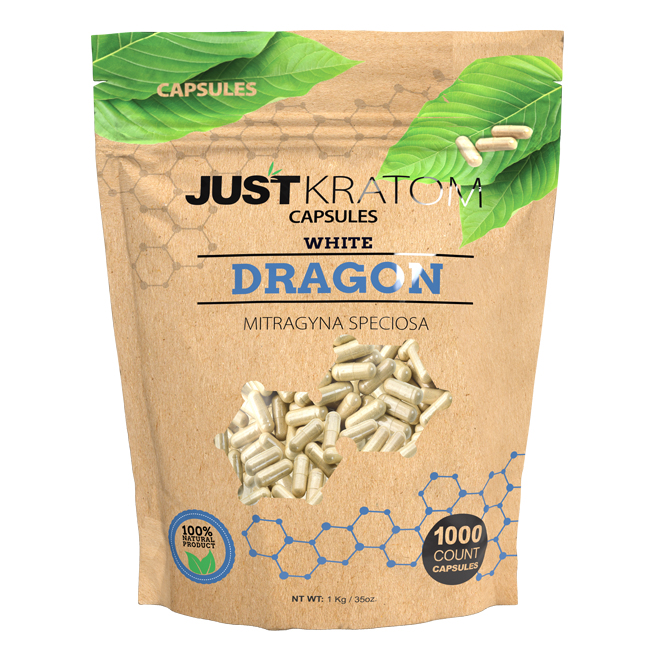Can Kratom Capsules Help With Opiate Withdrawal?
Kratom CapsulesCan Kratom Capsules Help with Opiate Withdrawal?
Opiate withdrawal can be an excruciating experience, characterized by intense physical and psychological discomfort. Individuals seeking relief from this debilitating condition often explore alternative treatments. Among these, kratom capsules have emerged as a potential option, sparking both curiosity and controversy.
What is Kratom?
Kratom is a tropical tree native to Southeast Asia whose leaves contain psychoactive compounds, primarily mitragynine and 7-hydroxymitragynine. These compounds interact with opioid receptors in the brain, producing effects similar to opioids, such as pain relief, euphoria, and sedation.
Users report that kratom can alleviate some of the symptoms of opiate withdrawal, such as nausea, vomiting, muscle aches, and anxiety. This is thought to be due to kratom’s ability to bind to opioid receptors and reduce cravings. However, it’s important to note that kratom does not completely eliminate withdrawal symptoms.
Despite anecdotal reports of its effectiveness, the scientific evidence supporting kratom’s use for opiate withdrawal is limited and inconclusive. More research is needed to fully understand the mechanisms by which kratom affects opioid withdrawal and its long-term effects.

It’s crucial to consult with a healthcare professional before using kratom, as it can have potential side effects and interactions with other medications.
Kratom’s Potential Effects on Opiate Withdrawal Symptoms
Opiate withdrawal is a challenging process marked by intense physical and psychological discomfort. Individuals experiencing withdrawal often seek relief through various methods, and kratom capsules have emerged as a potential option. Kratom, derived from a tropical tree native to Southeast Asia, contains psychoactive compounds that interact with opioid receptors in the brain.
These compounds produce effects resembling those of opioids, including pain reduction, euphoria, and sedation. Users often report that kratom can alleviate some opiate withdrawal symptoms like nausea, vomiting, muscle aches, and anxiety. It is believed that kratom’s ability to bind to opioid receptors contributes to reducing cravings associated with withdrawal.
However, it is important to emphasize that kratom does not completely eliminate withdrawal symptoms. Scientific evidence supporting the use of kratom for opiate withdrawal remains limited and inconclusive. Further research is necessary to fully comprehend how kratom impacts opioid withdrawal and its potential long-term consequences.
Before considering kratom, it is crucial to consult with a healthcare professional. Kratom can have potential side effects and may interact with other medications.
Scientific Evidence and Research
Opiate withdrawal is a challenging process marked by intense physical and psychological discomfort. Individuals experiencing withdrawal often seek relief through various methods, and kratom capsules have emerged as a potential option. Kratom, derived from a tropical tree native to Southeast Asia, contains psychoactive compounds that interact with opioid receptors in the brain.
These compounds produce effects resembling those of opioids, including pain reduction, euphoria, and sedation. Users often report that kratom can alleviate some opiate withdrawal symptoms like nausea, vomiting, muscle aches, and anxiety. It is believed that kratom’s ability to bind to opioid receptors contributes to reducing cravings associated with withdrawal.
However, it is important to emphasize that kratom does not completely eliminate withdrawal symptoms. Scientific evidence supporting the use of kratom for opiate withdrawal remains limited and inconclusive. Further research is necessary to fully comprehend how kratom impacts opioid withdrawal and its potential long-term consequences.
Before considering kratom, it is crucial to consult with a healthcare professional. Kratom can have potential side effects and may interact with other medications.
Potential Risks and Side Effects
Opiate withdrawal can be incredibly challenging, characterized by intense physical discomfort and psychological distress. Individuals experiencing this often seek relief through various methods, and kratom capsules have emerged as a potential option.
Kratom, derived from a tropical tree native to Southeast Asia, contains psychoactive compounds that interact with opioid receptors in the brain. Users report that kratom can help alleviate some withdrawal symptoms, such as nausea, vomiting, muscle aches, and anxiety. This is thought to be due to kratom’s ability to bind to opioid receptors, potentially reducing cravings.

However, it’s important to note that kratom does not completely eliminate withdrawal symptoms. The scientific evidence supporting the use of kratom for opiate withdrawal is limited and inconclusive. More research is needed to fully understand its mechanisms and long-term effects.
Before using kratom, it’s crucial to consult a healthcare professional. Kratom can have potential side effects and may interact with other medications.
Dosage Considerations

Opiate withdrawal is a challenging process marked by intense physical and psychological discomfort. Individuals experiencing withdrawal often seek relief through various methods, and kratom capsules have emerged as a potential option. Kratom, derived from a tropical tree native to Southeast Asia, contains psychoactive compounds that interact with opioid receptors in the brain.
Users often report that kratom can alleviate some opiate withdrawal symptoms like nausea, vomiting, muscle aches, and anxiety. It is believed that kratom’s ability to bind to opioid receptors contributes to reducing cravings associated with withdrawal.
However, it is important to emphasize that kratom does not completely eliminate withdrawal symptoms. Scientific evidence supporting the use of kratom for opiate withdrawal remains limited and inconclusive. Further research is necessary to fully comprehend how kratom impacts opioid withdrawal and its potential long-term consequences.
Before considering kratom, it is crucial to consult with a healthcare professional. Kratom can have potential side effects and may interact with other medications. Dosage considerations for kratom are complex and depend on factors such as individual body weight, metabolism, and the severity of withdrawal symptoms. It’s essential to start with a low dose and gradually increase it under the guidance of a healthcare professional.
Legal Status of Kratom
Opiate withdrawal can be incredibly challenging, characterized by intense physical discomfort and psychological distress. Individuals experiencing this often seek relief through various methods, and kratom capsules have emerged as a potential option. Kratom, derived from a tropical tree native to Southeast Asia, contains psychoactive compounds that interact with opioid receptors in the brain. Users report that kratom can help alleviate some withdrawal symptoms, such as nausea, vomiting, muscle aches, and anxiety. This is thought to be due to kratom’s ability to bind to opioid receptors, potentially reducing cravings.
However, it’s important to note that kratom does not completely eliminate withdrawal symptoms. The scientific evidence supporting the use of kratom for opiate withdrawal is limited and inconclusive. More research is needed to fully understand its mechanisms and long-term effects.
Before using kratom, it’s crucial to consult a healthcare professional. Kratom can have potential side effects and may interact with other medications.
The legal status of kratom varies widely across the globe.
In some countries, it is entirely banned, while in others, its sale and use are legal but regulated. The United States has a complex regulatory landscape regarding kratom, with individual states adopting different approaches. Some states have outright bans, while others have implemented regulations or restrictions on its sale and possession.
The Drug Enforcement Administration (DEA) in the US attempted to classify kratom as a Schedule I drug in 2016, but this move was met with significant public outcry and ultimately reversed.
Kratom remains in a legal gray area in the US, with ongoing debates about its safety, efficacy, and potential for abuse.
Alternatives to Kratom for Opiate Withdrawal
Opiate withdrawal can be incredibly challenging, characterized by intense physical discomfort and psychological distress. Individuals experiencing this often seek relief through various methods, and kratom capsules have emerged as a potential option. Kratom, derived from a tropical tree native to Southeast Asia, contains psychoactive compounds that interact with opioid receptors in the brain. Users report that kratom can help alleviate some withdrawal symptoms, such as nausea, vomiting, muscle aches, and anxiety. This is thought to be due to kratom’s ability to bind to opioid receptors, potentially reducing cravings.
However, it’s important to note that kratom does not completely eliminate withdrawal symptoms. The scientific evidence supporting the use of kratom for opiate withdrawal is limited and inconclusive. More research is needed to fully understand its mechanisms and long-term effects.
Before using kratom, it’s crucial to consult a healthcare professional. Kratom can have potential side effects and may interact with other medications.
Alternatives to kratom for opiate withdrawal include medically supervised detoxification, behavioral therapies, and medication-assisted treatment (MAT).
Medically supervised detoxification involves gradually tapering off the opioid under the care of healthcare professionals. This approach helps manage withdrawal symptoms and minimize risks associated with abrupt cessation.
Behavioral therapies, such as cognitive behavioral therapy (CBT) and contingency management, can help individuals cope with cravings, develop healthy coping mechanisms, and address underlying psychological issues that contribute to opioid addiction.
Medication-assisted treatment (MAT) utilizes medications like methadone, buprenorphine, or naltrexone in conjunction with counseling and behavioral therapies. These medications can reduce withdrawal symptoms, cravings, and the risk of relapse.
Seeking Professional Medical Advice
Opiate withdrawal is a challenging process marked by intense physical and psychological discomfort. Individuals experiencing this often seek relief through various methods, including kratom capsules.
Kratom, derived from a tropical tree native to Southeast Asia, contains psychoactive compounds that interact with opioid receptors in the brain. Users report that kratom can alleviate some opiate withdrawal symptoms like nausea, vomiting, muscle aches, and anxiety. This is thought to be due to kratom’s ability to bind to opioid receptors, potentially reducing cravings.
However, it is important to emphasize that kratom does not completely eliminate withdrawal symptoms. Scientific evidence supporting the use of kratom for opiate withdrawal remains limited and inconclusive. More research is needed to fully understand its mechanisms and potential long-term effects.
Before considering kratom, it is crucial to consult with a healthcare professional. Kratom can have potential side effects and may interact with other medications.
It is essential to seek proper medical advice and support when dealing with opiate withdrawal. Healthcare professionals can help determine the most appropriate course of treatment based on individual needs.
Order premium Kratom capsules for daily energy
- Is THC Soda Safe For Long-Term Use? What Research Says - May 11, 2025
- How To Incorporate CBD Gummy Sweets Into Your Daily Routine - May 11, 2025
- How Do CBD Vape Pens Affect Your Mood And Energy Levels? - May 11, 2025
